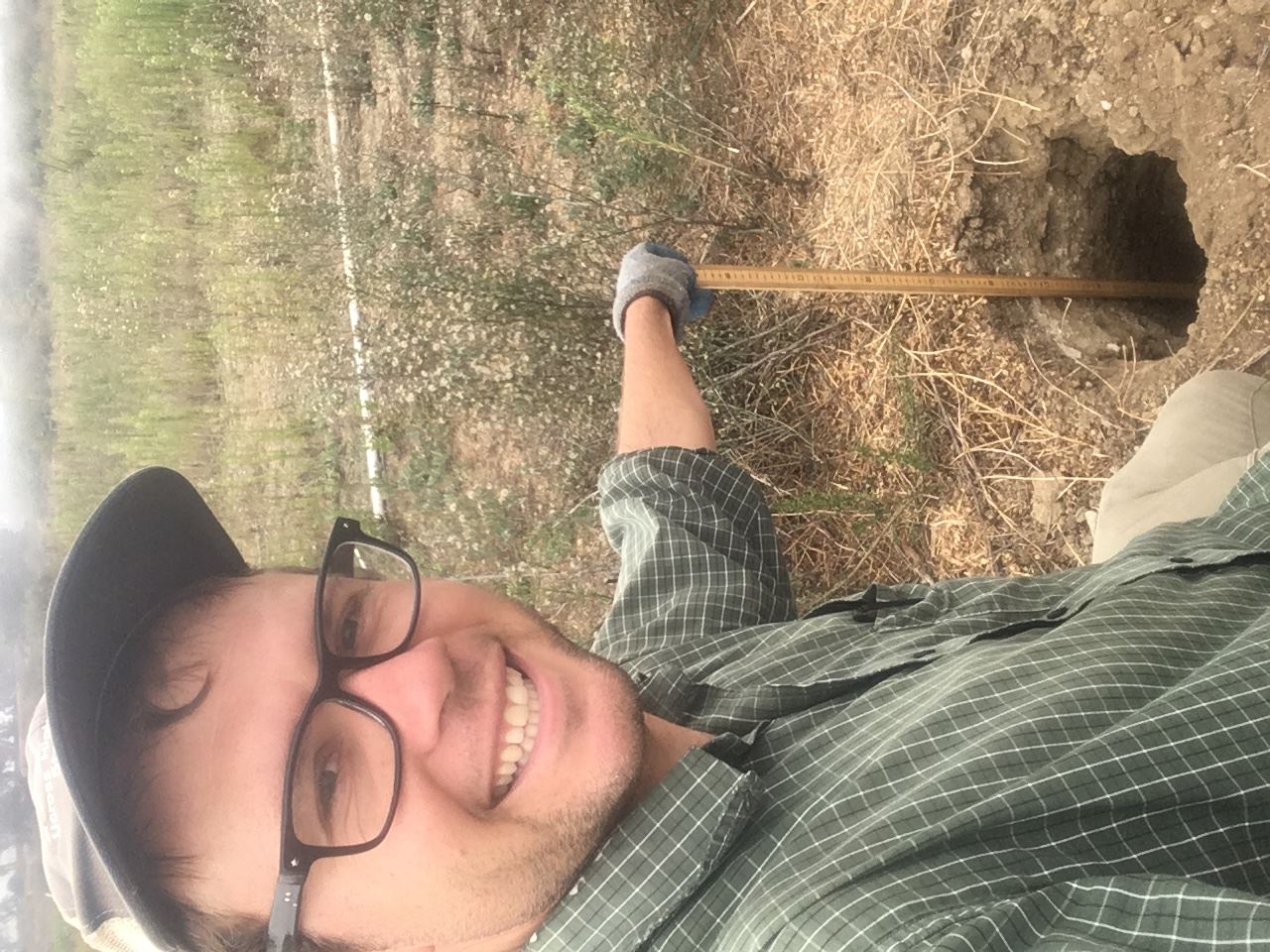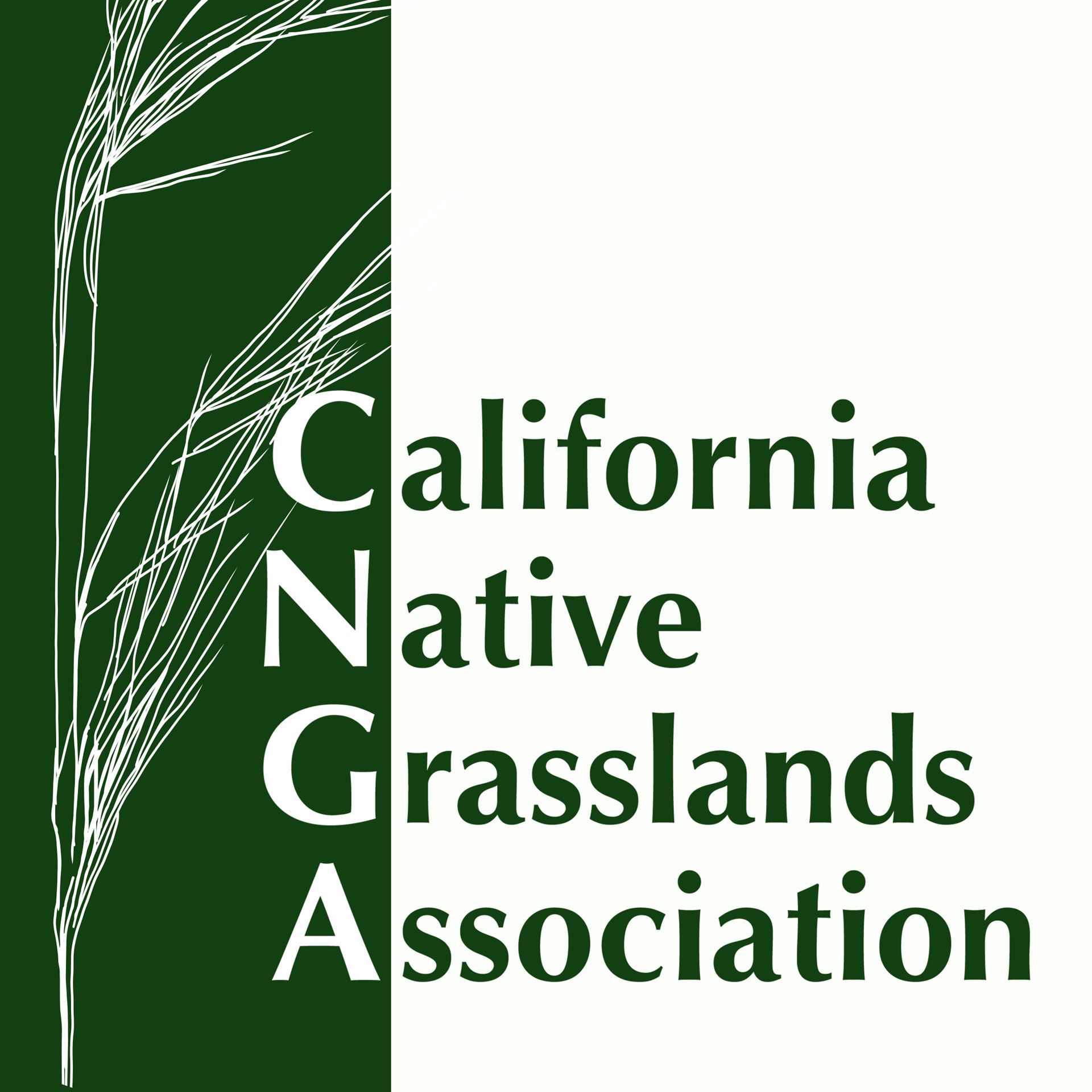California Native Grassland Association GRASS Award Speaker Series
Join Us for the CNGA’s Second Virtual Speaker Series showcasing the amazing work undertaken in California Grasslands by some of our Grassland Research Awards for Student Scholarship Winners.
Talks are on Tuesdays from 6:30 PM - 7:30 PM PST featuring one 40-minute talk, or two 20-minute talks, with time for Q&A.
Members: Free Non-Members: $10 Non-Member Students: Free with Student ID
Grazing-induced changes in soil carbon cycling differ under annual and perennial grasses

Jacob Weverka, UC Santa Barbara
Tuesday, November 14, 6:30 pm – 7:30 pm
Abstract: Soil carbon storage is an important function of grassland ecosystems, supporting both ecosystem productivity and global warming mitigation. Due to these dual benefits, many grassland managers are interested in managing grazing to support soil carbon storage. In grassland ecosystems, grazing management that encourages root production may promote soil C storage. Grazing can change how plants allocate C towards root production and activity, but this response varies depending on the plant species that is grazed. In California grasslands, where native perennial grasses have largely been supplanted by exotic annual grasses, differing responses between vegetation types may then control the response of soil C to grazing. To understand how grazing affects soil C cycling under different vegetation types, we grew a native perennial grass and an exotic annual grass in clear-sided rhizoboxes to examine how simulated grazing influenced root growth and mortality. We also measured soil microbial biomass and extracellular enzyme activity under each species. We found that intensively grazed perennial grasses possessed fewer roots and less soil microbial biomass, while extracellular enzyme activity was higher. In contrast, the annual grass showed no response of roots to grazing, and soil microbial biomass and extracellular enzyme activity also showed no response to grazing. These results suggest that the plant-level root grazing responses depend on plant demand for nutrients and water during regrowth, and that these responses can shift the nature of the carbon cycle in the surrounding soil. Improving our understanding of these plant-level responses to grazing could help inform adaptive grazing management for soil carbon storage under different grassland vegetation types.
Bio: I am a fifth-year Ph.D. candidate at UC Santa Barbara, studying soil organic carbon cycling with Josh Schimel. I have diverse research interests related to soil carbon cycling, and I am particularly interested in understanding how plant contributions to soil carbon change under varying management regimes and environmental conditions in California grasslands. I hope that my research can inform ecosystem management for both soil health and climate mitigation. Before I was a graduate student I worked for a number of government and non-profit organizations in California, including the National Park Service and Point Blue Conservation Science. My favorite native grass is Deschampsia danthonoides.
Contact Justin Luong (justin.luong@humboldt.edu) with any questions.
Upcoming GRASS Speaker Series Schedule, Tuesdays, 6:30 - 7:30 pm
(Download a Flyer Here)
December 5 – Annie Meeder (Cal Poly SLO)
December 12 – Jasmine Rios (CSU Sacramento)
January 16 – Rebecca Nelson (UC Davis)
January 30 – Brook Wainwright (UC Davis)
February 6 – Spencer Peterman (UC Riverside)
February 13 – Katherine Brafford (UC Davis)
February 20 – Taylor Akers (CSU Sacramento)
February 27 – Mary Badger (UC Davis)
Help Support Student Research - Donate to the GRASS Program
CNGA's GRASS Program:
- Focuses student research on important grassland-related questions.
- Inspires students to become more involved in California Grassland Conservation and Restoration.
- Trains future employees for your agency or company.
- Creates advocates for California Grasslands
Learn More About GRASS - Applications Accepted Nov 1 - Jan 31

